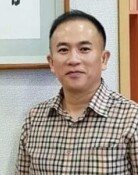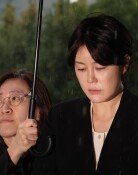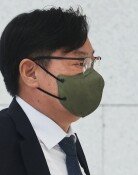[Op-Ed] Gov`t Pressure on Economic Forecasts
[Op-Ed] Gov`t Pressure on Economic Forecasts
Posted February. 12, 2009 07:48,
Economists, not entrepreneurs or citizens, were apparently surprised the most when new Strategy and Finance Minister Yoon Jeung-hyun lowered the economic growth target for this year to minus two percent. This is not because they were more concerned about the worsened economic situation. State-run and private think tanks alike have announced positive growth targets using whatever excuse they have in accordance with the governments goal for economic growth (three percent). The administration, however, has suddenly reversed its course to project a negative growth figure. Think tanks survive and thrive through their capacity to analyze and predict, but have been stabbed in the back.
When the Korea Development Institute estimated growth this year of 0.7 percent, a figure below the psychologically important level of one percent, Jan. 21, pundits said the institute did what it had to after a long while. The Korea Institute of Finance also received similar compliments when it lowered its growth forecast to a record-low 1.7 percent late last year. The two institutes, however, lamented that though most researchers predicted negative growth, the two state-run think tanks could not afford to publicize it. This means they exaggerated their forecasts to save face for the government. Korea Institute of Finance President Lee Dong-geol, who resigned late last month, said, When we announced a growth target of one percent, we faced government criticism.
It became very difficult to try to predict economic growth as the situations at home and abroad and the governments response kept rapidly changing. The Bank of Korea suggested the possibility of negative growth this year late last month through a lecture by its head, despite predicting growth of two percent in December last year. If the situation was so serious, the bank should have made an official announcement. It makes no sense for the public to depend on data from foreign financial institutes to figure out this years economic conditions. If it is apparent that even private think tanks considered the governments position in making forecasts, will researchers feel shame or fortunate for understanding their own situations?
The government has nothing to gain even if it seeks to curb the research market from releasing independent data and thus reducing complaints about policy. This is because such a move could hamper raising issue with or making policy proposals to the government. Moreover, more economic prophets such as Minerva will gain ground, and the government will again end up struggling to counter groundless rumors. Minister Yoons pledge of an honest government will prove meaningful if and when he means to declare a free research market. It will be unfair if think tanks cannot disclose what they find and predict at their own discretion even when the government frankly assesses the economic situation.
Editorial Writer Hong Kwon-hee (konihong@donga.com)
Headline News
- N. Korea redefines S. Korea as ‘hostile state’ in revised constitution
- Samsung develops graphic DRAM with industry-leading capacity and speed
- Three questions allegedly leaked via text message during Yonsei Univ. essay test
- China to inject 340 trillion won in loans to support real estate sector
- Dodgers beat Mets to take 2-1 lead in NLCS







